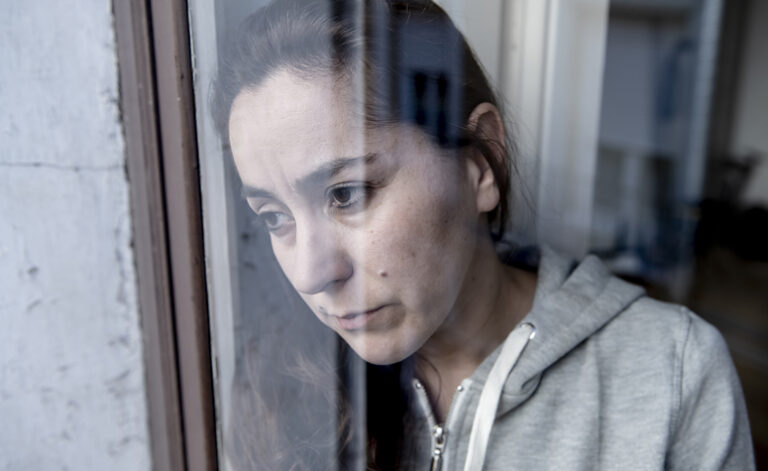Understanding the Causes of Depression
The chances of you experiencing depression are likely to be a combination of different factors. Some people are more vulnerable because genetic and psychological factors contribute to the development of depression. Environmental stresses likewise influence the development of depression.
We examine the underlying factors that could increase your likelihood of developing depression and look at some of the triggers that are linked to the condition.

What are the top 5 causes of depression?
According to research, several underlying factors can increase your vulnerability to depression. The 5 most common causes include:
- Existing mental health problems
- Distressing or traumatic life events
- Personality traits and types
- Physical health problems
- Major life changes
Although there are things beyond our control, such as preexisting mental health issues, personality traits, and physical health problems, it is very important to deal with and actively manage these factors because they can increase one’s risk of developing depression. If left untreated, existing mental health conditions such as anxiety or bipolar disorder can heighten the chances of experiencing depression, and the same is true when one’s physical health is neglected. In addition, certain personality traits, such as being a perfectionist or being very self-critical, make us more vulnerable because being too hard on ourselves lowers our self-esteem.
Major life events may lead to depression because sometimes they can be overwhelming. Death of a loved one, being a victim of or a witness to a crime, or being diagnosed with a severe illness are just some examples of such events. If you cannot cope or don’t have support after these things happen, there’s a big chance that your low mood will develop into full-blown depression.
Traumatic events can also cause people to develop post-traumatic stress disorder (PTSD). A number of distressing symptoms characterise this mental health condition, and depression is one of them. Conversely, depression can also be triggered by PTSD.
Aside from those mentioned above, other factors such as poor diet, lack of exercise and sleep, biological factors, and brain chemistry can also contribute to one’s increased vulnerability to depression.

What lies behind us and what lies before us are
tiny matters compared to what lies within us
Biological factors of depression
The influence of genes on depression is complex, and an individual who is genetically predisposed to it will not necessarily develop the condition.
Some of the biological factors and triggers that may predispose someone to developing depression are the following:
Gender
The likelihood of women developing depression is higher than men. Although the reasons are complex and not yet fully understood, it is believed that the hormonal changes women go through during their lifetime, such as periods, pregnancies, and menopause, have a lot to do with it. Another factor is the demands and expectations of modern society on women, which some find overwhelming.
Age
Depression can affect people of all ages. However, older people are more susceptible to it. This may be due to the fact that the brain deteriorates with age. Depression can also be a symptom or result of dementia or stroke, which most often affects older people.
Genes
The role of genetics in depression is complex, and there’s not a single gene that has been linked to the mental condition. It’s believed that minor effects from a combination of genes interact with environmental factors, resulting in depression. According to research, having a close relative (such as a parent or sibling) who struggles with depression increases one’s likelihood of experiencing it as well.
Brain chemistry
There are chemicals in our brain called neurotransmitters that send messages from one part of the brain to another. Some neurotransmitters, such as serotonin and noradrenaline, appear to be linked to mood. When these aren’t functioning normally, a person’s mood is negatively affected, causing symptoms of depression.

Depression triggers
Medications, alcohol, and recreational drugs can induce depression. Some medications can trigger depression as a potential side effect. When taking prescription medication, always check the leaflet so you know what its side effects are. If you have any concerns about this, talk to your GP or pharmacist.
Using illicit drugs and drinking alcohol can also trigger depression. Alcohol and many types of drugs are called “depressants” because they change the way the chemicals in our brain function, causing our mood to become low.
The weather can also trigger depression. During the winter months, some people experience seasonal affective disorder (SAD). This type of depression is caused by limited exposure to daylight, which affects our mood. For many people, symptoms of depression are triggered when nighttime falls and the weather turns bleak.
FREE Depression Assessment
If you or a loved one are struggling with depression, there is hope and healing for you. You can receive treatment as an outpatient or inpatient and through one-on-one or support group therapy. We understand the challenges you’re facing and we’re here to offer compassionate help and support.
We design personalised treatment plans that meet an individual’s unique needs and circumstances. We will work together to address your symptoms, help you develop coping strategies and enable you to live life to the full in a healthy and positive manner.
We also have a young people’s service which provides specialist depression treatment exclusively for adolescents and young people.
Our highly trained advisers are available to speak to you right away, simply call 0808 252 3379 today.
We can discuss your concerns in complete confidence, explore the options for treatment, and help you to understand what will work best for you.
We’ll also help you to book your free depression assessment there and then, with appointments usually available within only a few days.
We understand that taking the first step can be the most difficult, but we’re here to support – with no pressure or judgement.
Professional and compassionate help is just a phone call or click away.




